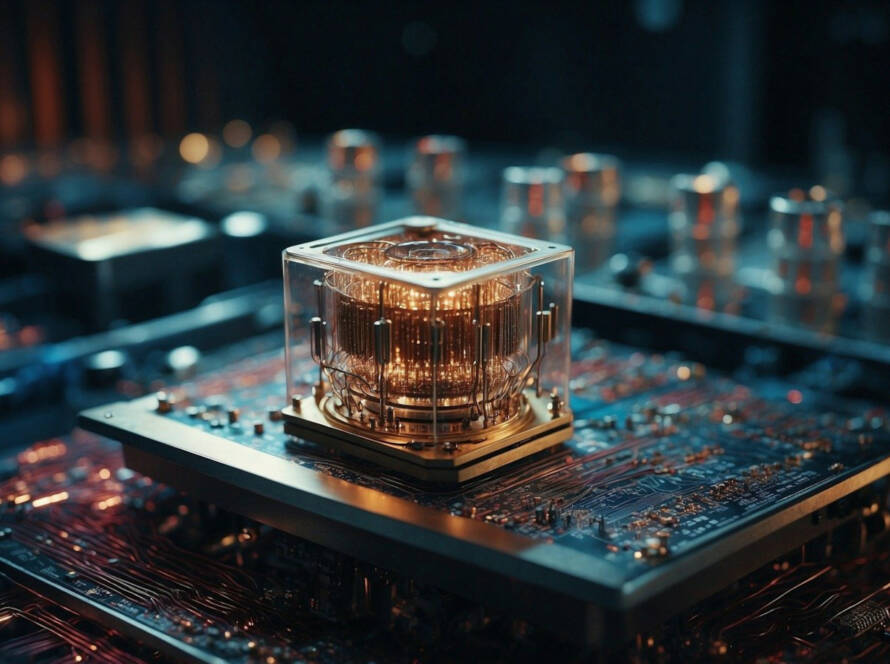The race to develop Artificial General Intelligence (AGI) has become one of the most competitive and transformative technological challenges of our time. With billions of dollars at stake, global tech giants and startups alike are pushing the boundaries of AI, striving to create models capable of performing tasks that were once the exclusive domain of humans. The race features well-known players like OpenAI’s ChatGPT, Google’s Gemini, Meta’s AI, Alibaba’s QwQ-32B, and others like DeepSeek and Oracle’s Stargate initiative. Let’s dive into this fast-paced AI competition.
OpenAI and ChatGPT: The Leader of the Pack
OpenAI has been at the forefront of the AI race, especially with its famous chatbot, ChatGPT. From revolutionizing customer service to enhancing creative writing and scientific research, ChatGPT is already a household name. OpenAI’s current efforts are focused on the next leap in AI, with the upcoming GPT-5 and eventual AGI in mind. The company’s partnership with Oracle to build Project Stargate, a massive data center in Texas, underscores its ambition to scale its AI infrastructure. The project, expected to cost $500 billion over four years, will feature powerful Nvidia chips designed specifically for AI tasks, setting the stage for the next-gen large language models (LLMs).
Google’s Gemini: Real-Time Data Meets AI Precision
Google has made significant strides with its AI, particularly through its Gemini models. Gemini, which emerged after Google’s earlier chatbot models faced some struggles, has been fine-tuned to reduce errors (or “hallucinations”) and improve real-time data integration. Unlike ChatGPT, which uses a static dataset, Gemini integrates live data from Google Search, providing a significant edge in delivering up-to-date responses, especially for current events and real-time inquiries. Gemini’s connection to Google’s ecosystem gives it an edge in offering live updates from services like Google Maps and search, a unique feature not readily available in other platforms.
Meta’s AI: Slowly but Steadily Entering Europe
Meta, the social media giant behind Facebook, Instagram, and WhatsApp, has also entered the AI race with its Meta AI chatbot. While Meta AI was initially launched in 2023, it faced delays in Europe due to stringent EU regulations. However, it has recently started expanding across 41 European countries. Meta AI’s integration into popular platforms like Facebook and WhatsApp gives it a massive potential user base. Although Meta AI is currently restricted to text-based conversations and lacks advanced capabilities like image generation, its widespread reach gives it a strategic advantage in the race for AI dominance.
Alibaba: Competing on Efficiency
Alibaba, a Chinese tech titan, has introduced its own AI model, the QwQ-32B, which has garnered attention for being highly efficient despite having fewer parameters than its competitors. This efficiency makes it an attractive option for use in both large-scale and resource-constrained applications. With the Chinese government backing its ambitions, Alibaba’s aggressive push into AI research and development is expected to shape the future of AI in Asia and beyond. The company also plans to invest heavily in AI over the next few years, cementing its place as a formidable player in the AI race.
DeepSeek: Optimizing AI for Efficiency
DeepSeek, a more recent entrant in the AI space, has made waves with its efficient, open-source approach to AI. Unlike other companies that rely on proprietary models, DeepSeek’s open-source architecture allows for more customizable and transparent AI development. Its lighter weight makes it well-suited for applications where resource optimization is crucial, while its simple, effective structure has earned it a loyal following among developers and researchers looking for cost-effective solutions.
Oracle’s Stargate: Building the Infrastructure for AGI
In a highly ambitious project known as Project Stargate, Oracle, in partnership with OpenAI and SoftBank, is constructing a supercomputer-powered data center in Abilene, Texas. The project aims to scale AI systems to unprecedented levels of power, with 64,000 Nvidia superchips set to power AI models that could eventually lead to AGI. With an estimated cost of $500 billion over four years, Stargate is positioning Oracle as a key player in the AI arms race. By providing the necessary infrastructure for training and deploying massive AI systems, Oracle is helping push the boundaries of what AI can achieve.
The Road Ahead: Who Will Win the Race?
As we look to the future, the question is not only about who will be the first to develop AGI but also who will control the infrastructure, data, and resources required to build it. With companies like OpenAI, Google, Meta, Alibaba, DeepSeek, and Oracle racing to develop the next generation of AI, the future of this technology is both exciting and uncertain.
While OpenAI’s ChatGPT currently leads the way in popularity, Google’s Gemini and Meta’s entry into Europe add serious competition. Alibaba’s focus on efficiency and DeepSeek’s open-source approach provide alternative paths to AI development. And with Oracle’s massive investment in supercomputing infrastructure through Project Stargate, the race is only getting faster.
The development of AGI could fundamentally change industries, economies, and society itself. But one thing is clear: the speed at which AI is advancing means that the race is far from over. As these companies continue to innovate and compete, the future of AI promises to be nothing short of transformative.


